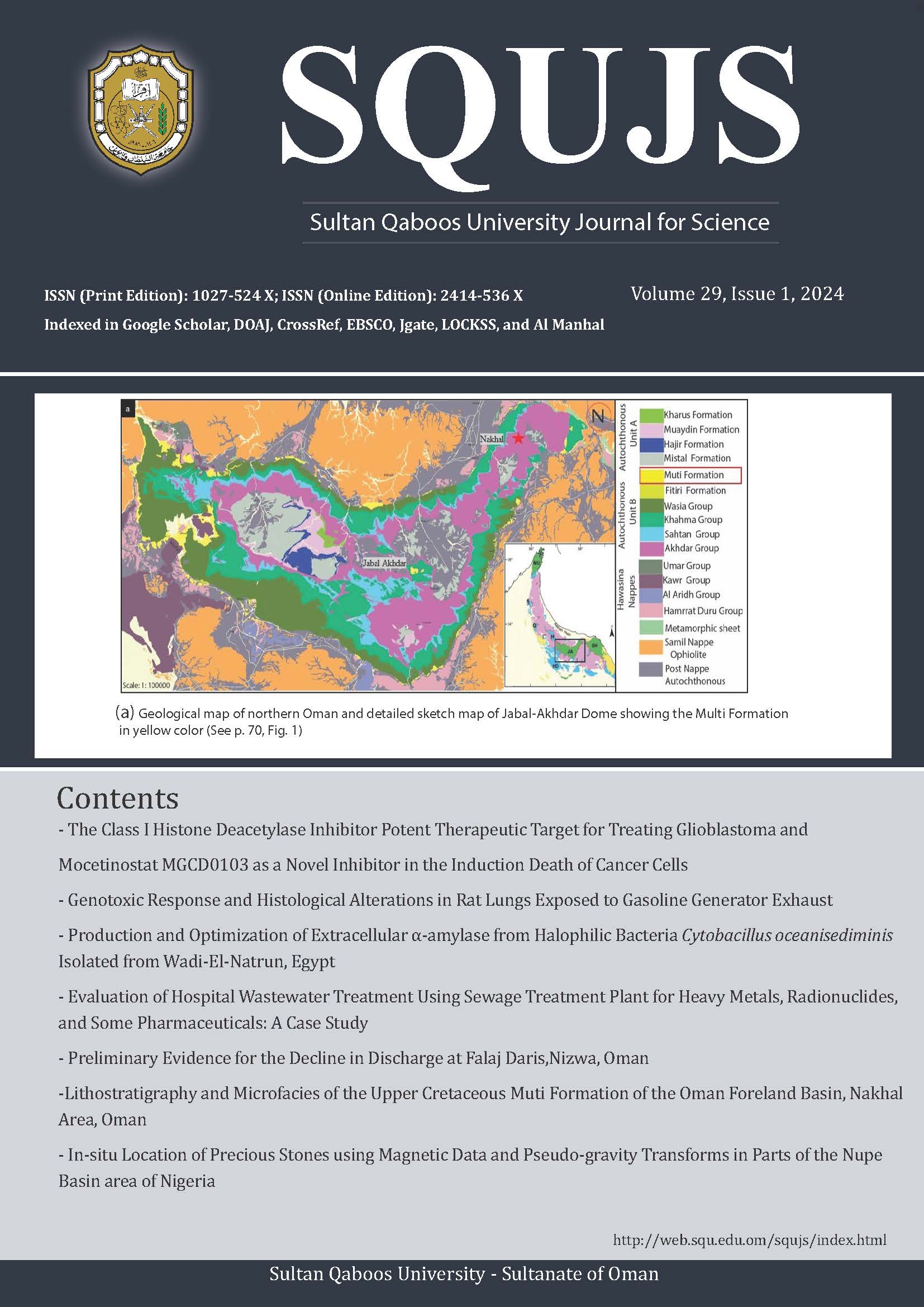Main Article Content
Abstract
The current study aimed to maximize α-amylase enzyme production by halophilic bacteria Cytobacillus oceanisediminis isolated from soil of Wadi-El-Natrun, Egypt. The results showed that of 21 halophilic bacterial isolates recovered from saline soil samples, eight isolates were high amylase producers. Interestingly, the bacterial isolate AHB6 exhibited the highest extracellular amylase production and was selected for further studies. This isolate was molecularly identified based on the 16srRNA gene sequencing as Cytobacillus oceanisediminis and has the accession number OM759999. The optimum temperature for α-amylase enzyme was 45 °C and exhibited thermostability at 45 °C for 1 h and retained more than 80% of its original activity. The α-amylase enzyme was active in almost all tested pHs and reached its highest activity at pH 9. Also, the optimum culture conditions for α-amylase enzyme production were wheat bran as carbon source, 2 g/l K2HPO4 as potassium source, 6 g/l MgSO4 as magnesium source and 0.5 g/l KNO3 as nitrogen source. These findings suggest the applicability of bacterial isolate Cytobacillus oceanisediminis as a potent producer of α-amylase for industrial purposes.
Keywords: Amylase; Optimization; Cytobacillus oceanisediminis; Starch hydrolysis; Thermo-halophilic bacteria.
Article Details

This work is licensed under a Creative Commons Attribution-NoDerivatives 4.0 International License.

